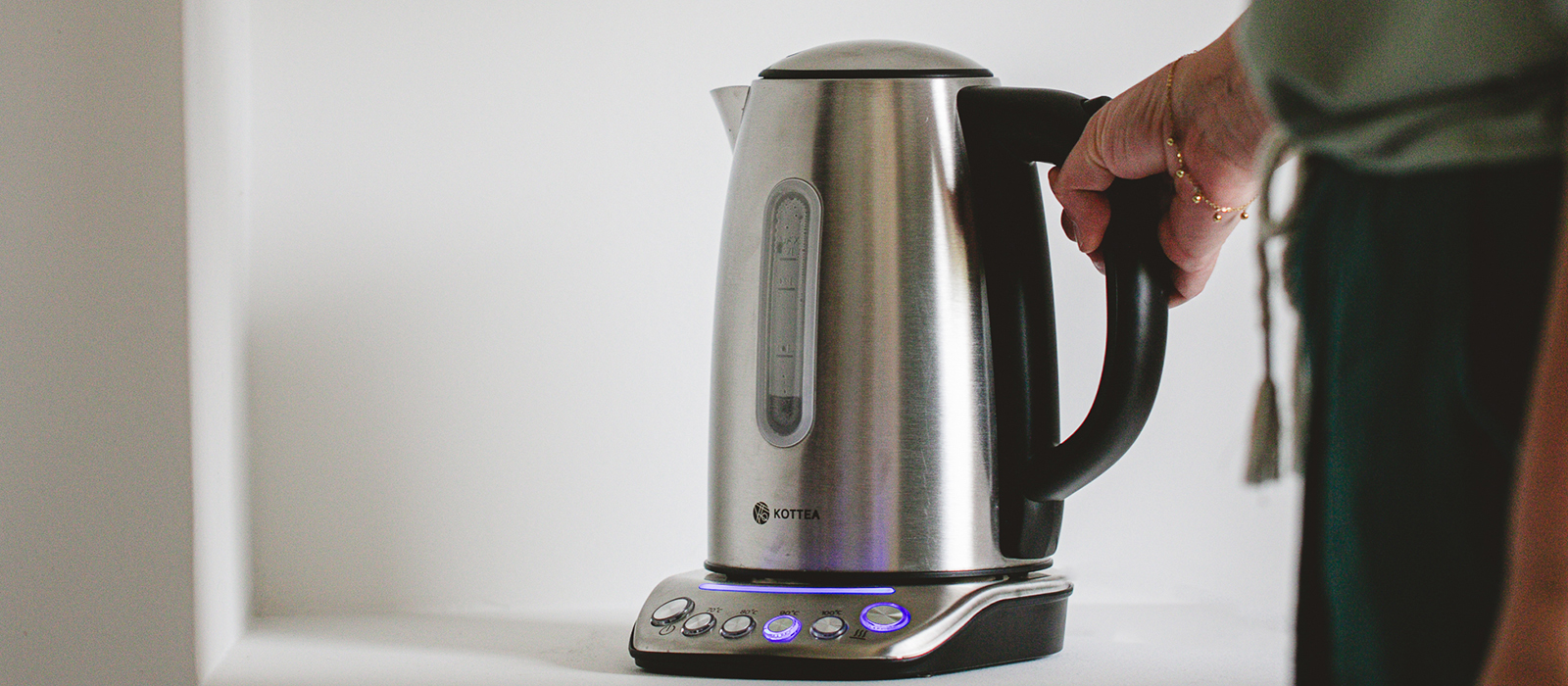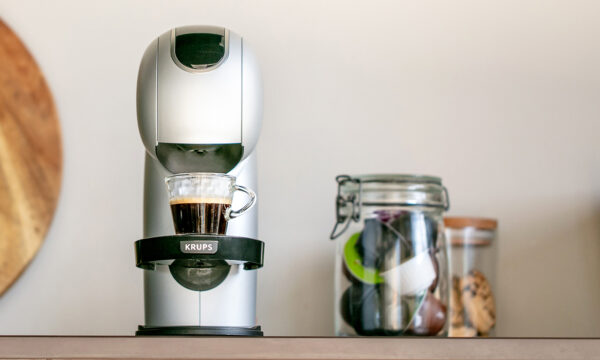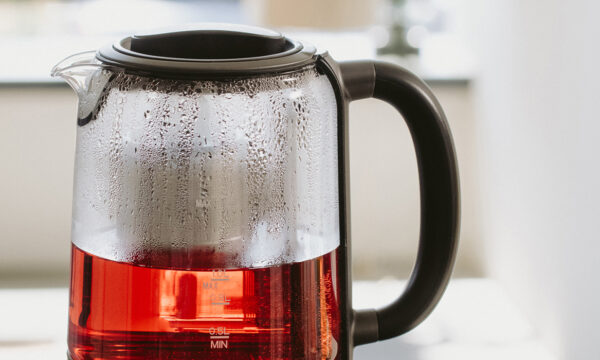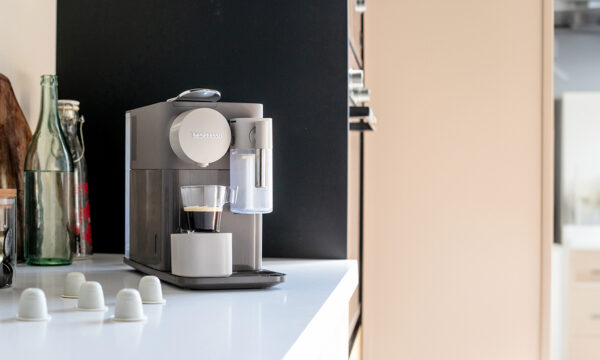
- Home
- DESCALING AN ELECTRIC KETTLE: YOUR COMPLETE GUIDE
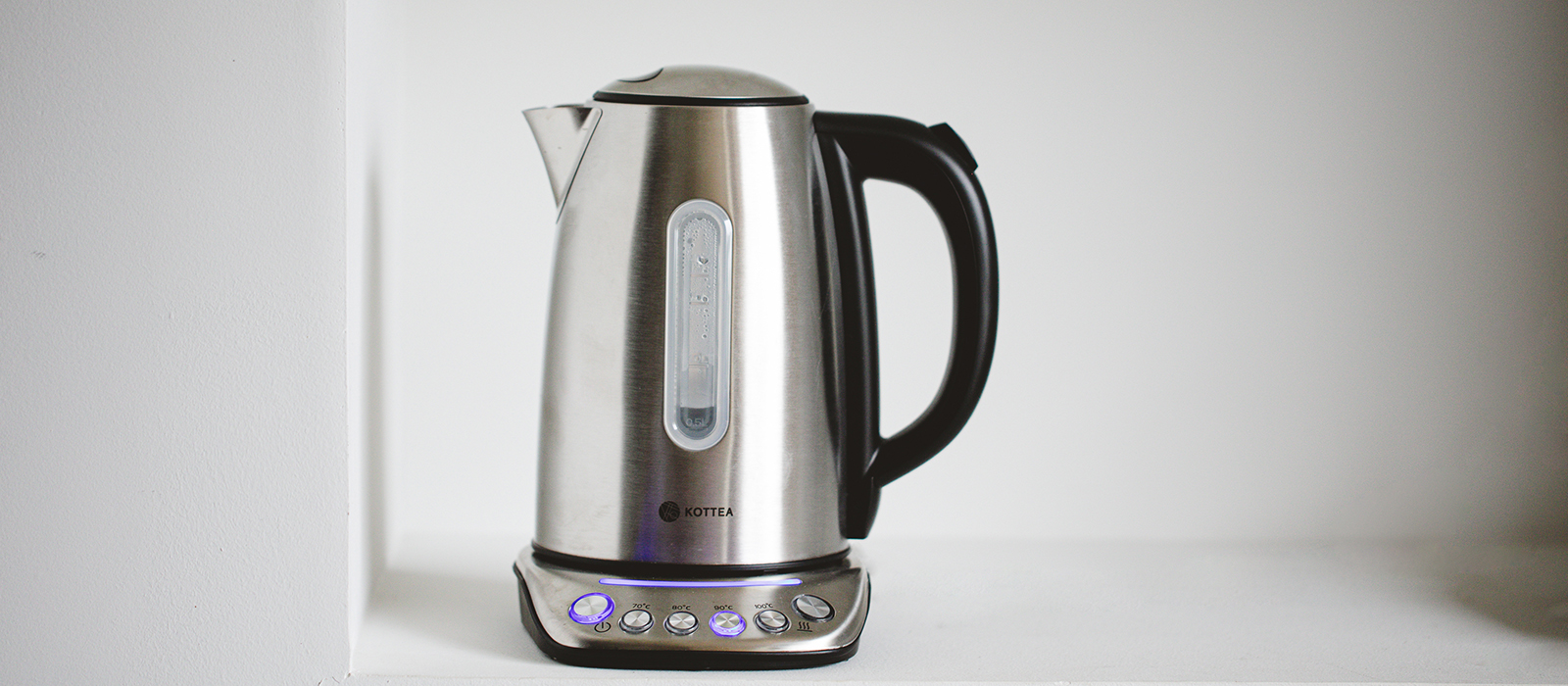
DESCALING AN ELECTRIC KETTLE: YOUR COMPLETE GUIDE
Written by Jordan
Descaling an electric kettle is a simple but essential process. It will extend your appliance’s shelf life and prevent limescale from affecting the taste of your beverages. In this article, we’ll share our tips and tricks for optimal descaling.
WHY DESCALE YOUR KETTLE?
As with any household appliance, kettles, whether traditional or electric, need regular maintenance. Limescale deposits are unavoidable and can lead to excessive electricity consumption.
What’s more, it can have serious consequences as deposits can cause bacteria to proliferate. Limescale will not only alter the taste of your tea, it also represents a health risk.
Finally, if you don’t descale your kettle regularly, you risk damaging it as it will struggle to heat water properly. What’s more, if too many deposits build up, your appliance will last less long. All of which goes to show how important it is to descale your kettle.
Descaling your kettle has several advantages:
- it extends its shelf life;
- reduces additional repair costs (limescale, etc.);
- ensures in cup quality (body, aroma and intensity);
- reduces heating time.
HOW TO DESCALE A KETTLE
Before you start descaling your kettle, there are several steps to consider. Descaling methods can vary depending on whether you want to use products found at home or order them on MaxiCoffee. Don’t panic, our experts are here to guide you.
You will need: your kettle, descaler, and some water.
Descaling your electric kettle in 5 simple steps:
- Fill your kettle with water
- Pour in your descaler
- Boil it
- Let it soak for 3 to 4 hours
- Don’t forget to rinse the kettle thoroughly 2 or 3 times when you’re done.
Note: for optimum descaling, you can add an extra step by heating fresh water at the end of the process. This will allow you to ensure that your appliance is free from any leftover product.
HOW OFTEN SHOULD I DESCALE MY KETTLE TO PREVENT SCALING?
We recommend descaling every two or three weeks. If that’s too much for you, one alternative is to prevent your kettle from scaling by only using low-limestone water. In other words, avoid using tap water. For example, you could use bottled soft water such as Volvic or Mont Roucous. This is what we use at MaxiCoffee.
You can also filter your tap water with a water filter jug or a reverse osmosis system.
This last method is a bit more pricey, but you’ll be guaranteed pure, soft water for your kettle!
OUR DESCALER TOP PICKS
At MaxiCoffee, we always favour all-purpose products for the care and maintenance of our appliances. We recommend biodegradable descalers from Durgol, as well as Arfize.
Durgol all-purpose biodegradable descaler – 500 ml
Effectively descale your household items with minimal impact on the environment. This biodegradable descaler has strong lime dissolving power and allows you to descale in an eco-friendly way without compromising on results.
In addition to protecting your appliances, this descaler is also biodegradable. It can be used to descale up to 4 times, and is 5 times faster than an ordinary descaler.
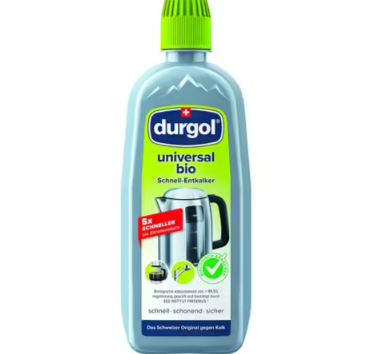
Arfize universal descaler – 500ml
This descaler effectively cleans all household items. Arfize is committed to extending the life of your household appliances. Thanks to this product, you can continue to enjoy your favourite beverages and keep your machines working longer.
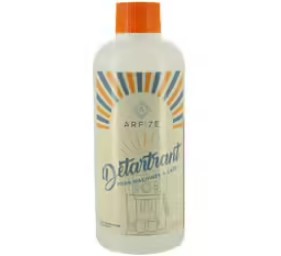
Universal Descaler – Arfize (500 ml)
– Can be use for coffee machine, manual coffee machine, kettle
– Removes limescale from all appliances
– 5 Doses Capacity
Bosch Siemens 2 in 1 Descaling tablets
This 2 in 1 descaling tablets are made for bean-to-cup coffee machines, but also works for your kettle. Simply use 1 tablet each time you need to descale your kettle. It will removes limescales deposits powerfully, quickly and reliably !
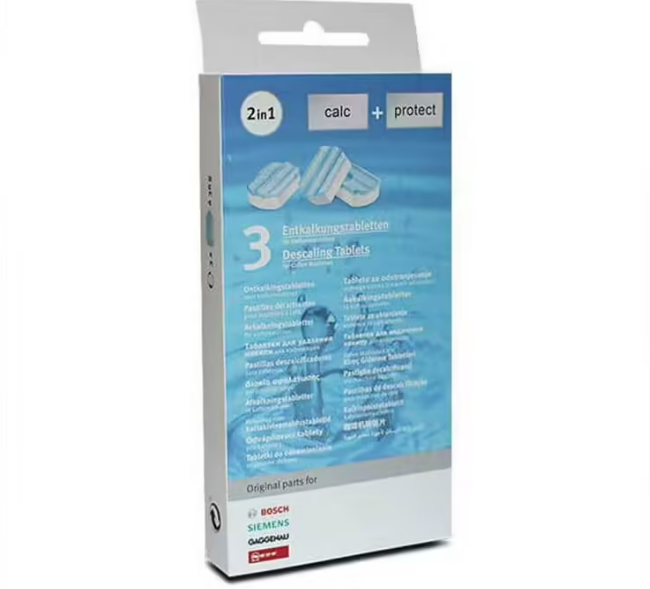
Descaler – 2 in 1 tablets – Siemens/Bosch
– Suitable for Bosch and Siemens machines
– Treats limescale and scale
– Protects against corrosion
WHY YOU SHOULDN’T USE WHITE VINEGAR TO DESCALE YOUR KETTLE
Despite its many advantages (nontoxic, 100% natural and easy to use), we don’t recommend using white vinegar to clean your kettle.
There are several reasons why you should avoid using it, but mostly because white vinegar is too corrosive for your appliance’s seals, and could damage them. This may in turn affect the taste of your drinks and shorten the shelf life of your machine.
But by keeping your kettle in top-notch condition you’ll be sure to prolong its service life. You should now be more prepared next time you need to descale your kettle. If you’d like to learn more about how to descale your household appliances, check out our other dedicated articles.
Discover all of our articles
